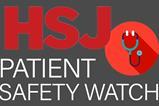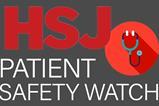HSJ is now hosting the Patient Safety Watch newsletter, written by Patient Safety Watch chief executive James Titcombe.
Good afternoon and welcome to this edition of the Patient Safety Watch newsletter. It’s been another busy period for patient safety news, so let’s crack on.
Government publishes full response to the East Kent investigation
Bill Kirkup’s Maternity and neonatal services in East Kent: Reading the Signals report was published in October 2022, outlining in tragic detail the poor maternity care received by more than 200 families at East Kent Hospitals University Foundation Trust between 2009 and 2020. This week, the government published its full response to the report.
Key points to note:
- Health minister Maria Caulfield will chair a new national oversight group, bringing together “key people from the NHS and other organisations” to review maternity and neonatal improvement programmes; and
- Dr Kirkup has been appointed to oversee the implementation of the report’s recommendations relating to staff culture and issues of compassionate care, professional behaviour and teamworking.
Meanwhile, a government press release confirmed the following actions are now being taken:
- NHS England has established a special data task force to better monitor patient safety in maternity and neonatal care nationwide;
- Relevant bodies, alongside the Department of Health and Social Care, will examine how teamwork in maternity and neonatal care can be improved – this work extends to the training received by doctors;
- Trusts will be required to have maternity represented at board level;
- NHSE, alongside the government, will continue work on its approach to poorly performing trusts and their leadership; and
- EKHUFT will continue addressing the problems identified and improving standards.
Helen Gittos, who lost her newborn daughter Harriet nine years ago, told ITV News: “I don’t think we could have asked for more from Maria Caulfield at this point in time. We needed independent leadership at a high level to make this happen and Maria, the minister, and Bill Kirkup himself will hopefully give us that.”
My reflections? It would be easy to feel cynical about the likelihood of yet more working groups and initiatives leading to meaningful change – after all, the issues identified in the East Kent report are not dissimilar to those identified in the Morecambe Bay investigation published seven years earlier.
However, this time I am cautiously optimistic things will be different. The beauty of the East Kent report is that it doesn’t make a huge number of detailed specific recommendations – rather it describes a small number of areas and the change that is needed. With the right focus (and Dr Kirkup himself being involved in the work can only be a positive), I’m hopeful the approach outlined this week will move us in the right direction.
Other news in this edition highlights the scale of the task ahead…
Maternity review set to become UK’s largest ever
Donna Ockenden, chair of the review into maternity care at Nottingham University Hospital Trust, has said 1,700 families’ cases will be examined, BBC News has reported. Further cases could be added after NHSE wrote to all affected families to explain the review was changing from an “opt in” to an “opt out” basis.
We should be cautious about referring to numbers like this and inferring any particular investigation is a “bigger” scandal than others as the methodology for other major inquiries has been different. However, it’s sadly very clear that problems at Nottingham have been on a significant scale. It’s a safe assumption that difficult revelations and yet more evidence of the need for change in our maternity system lie ahead.
Newborn health checks ‘limited and not fit-for-purpose’
Research from the NHS Race and Health Observatory has warned newborn health checks such as Apgar scores – which are carried out shortly after babies are born to quickly assess their health and ascertain if they need urgent help – “are limited and not fit-for-purpose for Black, Asian and ethnic minority babies, and need immediate revision”.
It warned the set of checks which form Apgar scores, which were developed in the 1950s, were created based on White European babies, with some guidance still stating a healthy baby’s skin should be “pink all over”.
Habib Naqvi, NHS Race and Health Observatory chief executive, said: “The results from this initial review highlight the bias that can be inherent in healthcare interventions and assessments and lead to inaccurate assessments, late diagnosis and poorer outcomes for diverse communities.”
NMC reviewing approach to FtP cases from failing maternity services
According to Nursing in Practice, the Nursing and Midwifery Council is set to produce a report into its approach to fitness to practise cases referred from failing maternity services.
The regulator said it wanted to understand how it had accounted for “context factors” and if it had taken “a fair and proportionate approach” to cases relating to major inquiries.
This sounds like important work and an opportunity to ensure the principles of “just culture” are encouraged.
Postcode lottery for palliative care…
A Healthcare Safety Investigation Branch report has found wide variation in palliative care provision for adults, despite a national strategy having been in place for more than a decade. Off the back of its findings, it recommended several safety actions for integrated care boards to implement, including “support[ing] collaboration between health and care organisations to define clear routes of support for people in and out of normal working hours” and making sure palliative and end-of-life care was included in workforce strategies.
The HSIB report was welcomed by the charity Sarcoma UK, whose statement and powerful account from the brother-in-law of Dermott – the gentleman at the centre of the HSIB investigation – can be read here.
… and for dementia
Hilary Evans, co-chair of the government’s dementia taskforce and chief executive of Alzheimer’s Research, has told The Guardian she foresees a “massive postcode lottery” for new dementia drugs. She added that, if some of the treatments currently in development were to become available today, their provision would be “patchy”, with those who could afford to “vying to pay privately”.
The interview was published shortly before it was announced Eli Lilly’s donanemab had been found to slow the progression of Alzheimer’s disease.
Duty to disclose – a step back for patient-centric decision making?
A Supreme Court decision in a recent legal case McCulloch v Forth Valley Health Board has been the subject of much discussion and debate this week.
Law firm Levy & McRae has written an informative summary of the case and commentary, stating: “The duty to disclose has now gone from a patient-centric haven to having medical paternalism burst back on to the scene.
“[Previous case law] was designed to put decisions about medical treatment firmly back in the patient’s hands as a reflection of not only societal changes in the provision of medicine and access to information online, but also the fact that patients are regarded as, ‘persons holding rights, rather than passive recipients of the care of the medical profession’. It seems the Supreme Court now considers that patients still need to be partly passive.”
Sharing some good stuff…
Building a safety culture toolkit
As the first part of a series of safety culture tools, NHSE has published Improving Patient Safety Culture – a Practical Guide.
NHSE national clinical adviser Matt Hill wrote in the foreword: “Safety culture can appear nebulous and it can be unclear how to improve it or indeed how the shift occurs. This has led to a broad number of approaches which are associated with improvements in safety culture but are not always successful when they are used in similar or different contexts…
“We hope that this ‘toolkit’ will give teams an understanding of how to craft, create and nurture a positive safety culture and provide a theoretical underpinning to how to shift the culture.”
Experiences around PSIRF and Safety Improvement – Coffee Trails
An initiative has been launched inviting healthcare professionals to join “safety improvement coffee trials” starting later this year. The purpose of the coffee trials is to connect healthcare professionals on a one-to-one basis, to enable sharing, learning, networking, support and more. The focus of these coffee trials is around the Patient Safety Incident Response Framework implementation and the initiative is supported by the Supporting Q Connections programme led by the Health Foundation. More information is available here.
Are you set for this year’s HSJ Patient Safety Congress?
A final share for this edition is a plug for this year’s HSJ Patient Safety Congress taking place in Manchester on 18 and 19 September. As a member of the congress advisory board, I’ve been excited to see the programme this year take shape. I’m also pleased to confirm Patient Safety Watch will be speaking in a session looking at what we know (and don’t know) about patient safety and sharing some insights from our forthcoming research report looking at the global state of patient safety and what we can learn from best practice examples of patient safety initiatives around the world. The full programme and how to register is available here.
That’s all for this edition – please look out for our next newsletter in two weeks’ time.
Thanks for reading and please stay safe.
James Titcombe































No comments yet